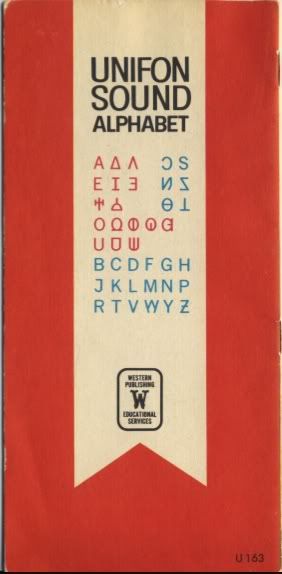Education environment Politics: denialists ignorance scientific consensus
by Warren
leave a comment
Meta
SiteMeter
Brighter Planet
Year 2, Month 2, Day 23: Teach Your Children Well…
The San Francisco Chronicle describes the work of the Alliance for Climate Education, as they do workshops and assemblies for high-school students. It’s all a part of welcoming them to the reality-based community, you know, which is why the Republicans are so agin it.
The 200 engrossed students at Oakland Unity High School kept their eyes glued to the projector screen and hardly uttered a sound during the 45-minute presentation – the most striking exception coming at the part of the special school assembly that featured cow farts.
It turns out bovine flatulence contributes to greenhouse gases. That was just one of several topics covered in the assembly, which was offered by the Alliance for Climate Education, an Oakland nonprofit that is trying to educate students about climate change one school at a time.
Since fall 2009, Alliance for Climate Education has visited 1,100 high schools in the United States, putting on assemblies for nearly 700,000 teens.
This was sent on Valentine’s Day, with Love to the Alliance For Climate Education!
Despite the frenzied conspiracy theorizing of denialists obsessing over an imaginary Socialist New World Order, climate change is a very real and significant danger — not just to Americans, but to all the world’s people. A secondary danger is that the anti-science veriphobes in the Republican party will succeed in convincing the American public that this threat (one perhaps greater than anything humans have yet faced) isn’t real. In 2004, an anonymous Bush administration official told Ron Suskind that “We’re an empire now, and when we act, we create our own reality.” By opposing any meaningful climate policy, the GOP is attempting to create its own reality — based not on verifiable facts, but on superstition, hubris and ignorance. Unfortunately for us all, even the most powerful empire cannot defeat the laws of physics. Which is why the work of the Alliance for Climate Education is so essential.
Warren Senders
Education environment: assholes denialists Education idiots Wisconsin
by Warren
leave a comment
Meta
SiteMeter
Brighter Planet
Year 2, Month 2, Day 17: Dumber-er-er-er
The Milwaukee Journal-Sentinel notes a newly released study on climate change’s projected impact on Wisconsin: 6-7 degrees of warming by 2050. Sounds fairly dire, no? Now just look at the comments.
Mailed Feb. 8. This is the letter that prompted the obscene phone call of this past Monday.
The failure of our country’s educational system is nowhere more abject than in the areas of science and mathematics — a statement easily verified by glancing through the online comments on the recent study from scientists at the University of Wisconsin dealing with the projected impact of climate change on the state. If our science education had been of higher quality, there would be far fewer people confusing “weather” with “climate.” If our mathematics classes had done their job, we wouldn’t see endless confusions of terms like “average” and “mean,” or such consistent misunderstanding of the statistics of probability. A scientifically-grounded, research-based study projecting a six to seven degree rise in temperature should cause at least a little alarm, even among people who aren’t paying attention. Instead, the alarms are in the minds of the paranoids who suspect a nefarious global conspiracy of climatologists, (led by Al Gore, of course).
Warren Senders
Education environment Politics: good advice
by Warren
leave a comment
Meta
SiteMeter
Brighter Planet
Education: phonetics spelling
by Warren
leave a comment
Meta
SiteMeter
Brighter Planet
The UNIFON Surprise Zoo
This is a children’s book written in the UNIFON alphabet, a phonetic reimagining of English that was developed in the 1950s. I found this in my files a while ago and occasionally pass it out to my students, asking them first to decipher it (takes about 3 minutes), then to imagine a similar approach to music notation (nobody’s gotten very far).
The confusions of English orthography are well known, and complaints about them are hardly new. The UNIFON system is a little more than fifty years old, and while I’m not crazy about all the symbols themselves, I do like the idea — especially as a transitional alphabet for people who are just learning to read English for the first time — either adult illiterates, non-Anglophones, or children.
On the other hand, the glorious mish-mash of English spelling can be wonderfully revealing to the etymologically inclined; I’d hate to think of all the clues to a word’s provenance and semantic overtones being homogenized by a new symbol set that cares not whether the phonemes it’s grinding are originally Latin, Greek, Old Norse, Sanskrit or whatever.
Anyway, here’s a word on UNIFON’s creator:
John R. Malone, a Chicago economist, first developed the UNIFON alphabet in the 1950’s. He was working for the Bendix Corporation and was commissioned to develop a universal phonemic code for International Air Services. As a result of a tragic air crash and an immediate demand for quick communication in the air, English was adopted as the universal language among pilots and ground control. John R. Malone’s contract was cancelled. Instead, he then used his newly developed alphabet to teach his young son to read in one afternoon thereby recognizing the valuable tool he had created for teaching children to read. For many years he worked to pass on this new method of learning and it was used in a number of schools in the Indianapolis and Chicago area. John R. Malone continues to live in the Chicago area and is a devout supporter of UNIFON. He has seen the success of this reading method in classrooms and with individuals.
Here’s the complete symbol set — one symbol per sound with no overlaps or ambiguities.








Education Indian music music: layakari practice riyaaz
by Warren
10 comments
Meta
SiteMeter
Brighter Planet
Practice: Layakari And Melodic Variation Within A Bandish
When students remark that they “don’t know how to practice,” I usually interpret it as meaning that they haven’t yet internalized the processes of time allocation and work analysis to make the best use of their limited practice time — and they wind up doing vaguely “sloppy” practice and feeling guilty about not being more rigorous.
Now, don’t get me wrong. There is a time and a place for relaxed, sloppy practice. If all your practice is rigid and meticulous, you’re missing out on the serendipitous possibilities of musical free inquiry.
But instructions as to the methodology of messing around are a different order of being, and that’s not what this posting is about. Just as a singer should spend a certain amount of time in free play, he or she needs to put in some regular time on building the skills that will ensure easy, consistent and correct performance capability.
Probably the easiest of these skills to teach through a blog post is layakari, the manipulation of rhythm in interesting patterns — which is why previous practice postings have focused on this area. Today’s is no exception.
I will present another reductionist approach to developing layakari skills within the confines of a teentaal bandish.
Education environment music Personal Politics Warren's music: inspiration parenting
by Warren
1 comment
Meta
SiteMeter
Brighter Planet
A Song When Hope Dims: Pete Seeger And The Napalm Ladies
I think I was twelve when my parents gave me a new Pete Seeger lp. They knew I loved his music; I’d listened over and over to “We Shall Overcome: The Carnegie Hall Concert” and knew most of the songs, or at least their lyrics, by heart. I’d memorized most of the songs on the “Children’s Concert at Town Hall,” and forty years later I can get a good laugh from any kid by singing “Where have you been all the day long, Henry my boy?” with its gross, lugubrious “greeeeeeeeen and yeller” chorus.
But this was a new disc, and I’m quite sure my folks just went into the store and grabbed something off the shelf. After all, Pete had a lot of albums, and they were all pretty much the same, right?

Well, actually, no.
Education: assholes Bob Ingliss idiots
by Warren
leave a comment
Meta
SiteMeter
Brighter Planet
Month 11, Day 18: Wait For It….Wait For It….Wait For It!
The outgoing GOP congressman from South Carolina, Bob Ingliss, was primaried by a tea-partier and lost, badly. He attributes this to his support for climate change legislation (and, indeed, for the notion that climate change exists at all). Now that he’s on the way out, he’s ready to educate his fellow Republicans.
Inglis, who has served six terms in the House, was soundly defeated by a more conservative opponent in a Republican primary this year and has blamed the loss in part on his belief in climate science, which hurt him with voters. Inglis made his frustration clear this morning at a House Science subcommittee hearing on the science of climate change.
“To my free enterprise colleagues, whether you think it’s all a bunch of hooey, what we talk about in this committee — the Chinese don’t, and they plan on eating our lunch in the next century, working on these problems,” Inglis said. “We may press the pause button for a few years, but China is pressing the fast-forward button.”
Inglis, ranking member of the House Energy and Environment Subcommittee, also took aim at “people who make a lot of money on talk radio and talk TV saying a lot of things. They slept at a Holiday Inn Express last night, and they’re experts on climate change. They substitute their judgment for people who have Ph.D.s and work tirelessly” on climate change.
This is the second letter this week to the NYT.
While it’s welcome news that Bob Ingliss has gone public with criticism of the GOP caucus’ rejections of climate science, it’s something of a tragedy that he didn’t take more advantage of his six terms in the House to educate his fellow Republicans on the matter. Given that there is a great deal of money to be made in so-called “green technology,” one would expect corporate-friendly conservatives to be champing at the bit for new investment opportunities. Instead, these “climate zombies” have donned an ideological armor that no facts can penetrate. Perhaps it’s because liberal Democrats (gasp!) think climate change is important, and Republicans cannot risk agreement with Democrats on anything anymore. Or they may believe global warming is the initial manifestation of their long-awaited Biblical Armageddon — which means that the new majority party in the US House is eager to bring about the extinction of our species. Uh-oh.
Warren Senders
Education Personal: Beacon College Campus-Free College learning self-education
by Warren
3 comments
Meta
SiteMeter
Brighter Planet
Bright College Days
More thoughts & recollections from my life as a learner.
College:
As a college student, I was lucky; I did my learning through a now-defunct organization called Campus-Free College. Another CFC graduate described it nicely:
Campus-Free College unfortunately no longer exists. It provided a fabulous opportunity for self-directed students (seeking bachelor and master degrees) to design their own curriculum in coordination with professors at colleges throughout the world and professionals in their chosen field of study. It was the ultimate school for entrepreneurs.
LinkAnother student recalls:
“Campus Free College” was the place where I applied to work on an undergraduate degree. The school was later renamed Beacon College. It was a place where you could negotiate and design your own college level program and then recruit your own teachers and advisors.
Perhaps the most famous graduate of CFC was Mitchell Kapor, the guy behind Lotus 1-2-3.
Every bit of learning I did at CFC (which later changed its name to Beacon College) was coordinated with two individuals: Larry L_____, who was assigned to be my “Program Advisor,” and was responsible for regular conferences with me about my learning goals and progress, and Joseph S____, who was assigned to be the “Monitor” for Larry and me, and was responsible for cross-checking with us about the larger context of what we proposed. Overseeing this three-part relationship was a body called the Academic Council, which approved the awarding of grades and offered feedback as required.
more »
Education Personal: assessment epistemology learning teaching
by Warren
3 comments
Meta
SiteMeter
Brighter Planet
Things I Learned In School, Pt. II
More thoughts on things I learned about teaching and learning…from teachers.
High School:
As a student in a public high school in Sudbury, Massachusetts, I had some friends who were officially my teachers; we talked about life, learning, politics, culture…and if they had to give me a C or a D in class, I really didn’t care. It was obviously a game we all had to play for the benefit of…who?
There was one history teacher, Mr. M_______, who taught a single course: a comprehensive year-long survey of Russian history. A classroom virtuoso, his teaching was part lecture, part dance, part abstract painting (his hyperkinetic scribbling on the chalkboard served as an outlet for an incessant need to move), part arts and crafts. He conceived Russian History not as a body-of-material-to-be-mastered, but as a medium through which students found out about the world and about themselves. At the time I took his course, which was open only to juniors and seniors, he was employing a very unusual grading method:
“In this class,” he said on the first day, “you are granted the symbol A. Depending on your contributions and participation, you will either receive a Large A, for ‘amazing,’ or a small a, for ‘awful.’ In either case you will have the symbol A. I do not want any of you doing work in the class because you crave a symbol. I want you doing the work because you genuinely want to do the work.”
It was a wonderful course. And what I took away from it was a general gestalt understanding of the sweep of Russian history…and a huge practical insight about what effective teaching could and should be. It didn’t matter that in the first semester I got an A and in the second an a. That, if anything, served to reinforce my growing awareness that the grades I got had nothing at all to do with what I learned.
Lesson: The System may require grades, but there are many ways to skin a cat.
From my freshman year in high school, I knew that I wanted to be on the school newspaper. I joined the staff and began writing and participating in the marathon layout sessions. It was my ambition to be the editor of the paper in my senior year; I felt this strongly enough that when my parents got one-year faculty appointments in Toronto for the duration of my junior year, I argued that I had to stay behind, or I would lose my place in the queue. I lived with my grandmother that year, and I kept my place (as “Associate Editor”); when my senior year began, I was the Editor, and I did a hell of a job, if I do say so myself. The paper had a Faculty Adviser, who stayed out of our way and signed forms as required. He was responsible for giving us all grades; everyone got an A. The grade was required by the system, but it was irrelevant to my motivation, which was purely that I wanted to edit the newspaper.
Lesson: You can get a good grade for doing a good job, and it still doesn’t necessarily mean anything.
Education India Indian music music: S.G. Devasthali taleem
by Warren
leave a comment
Meta
SiteMeter
Brighter Planet
Raga Bhatiyar: Taleem from S.G. Devasthali, 1994
This clip has just gone up on the S.G. Devasthali memorial page. It’s 30 minutes of detailed instruction from Guruji to me and Vijaya in early 1994.
Hope you enjoy it.
